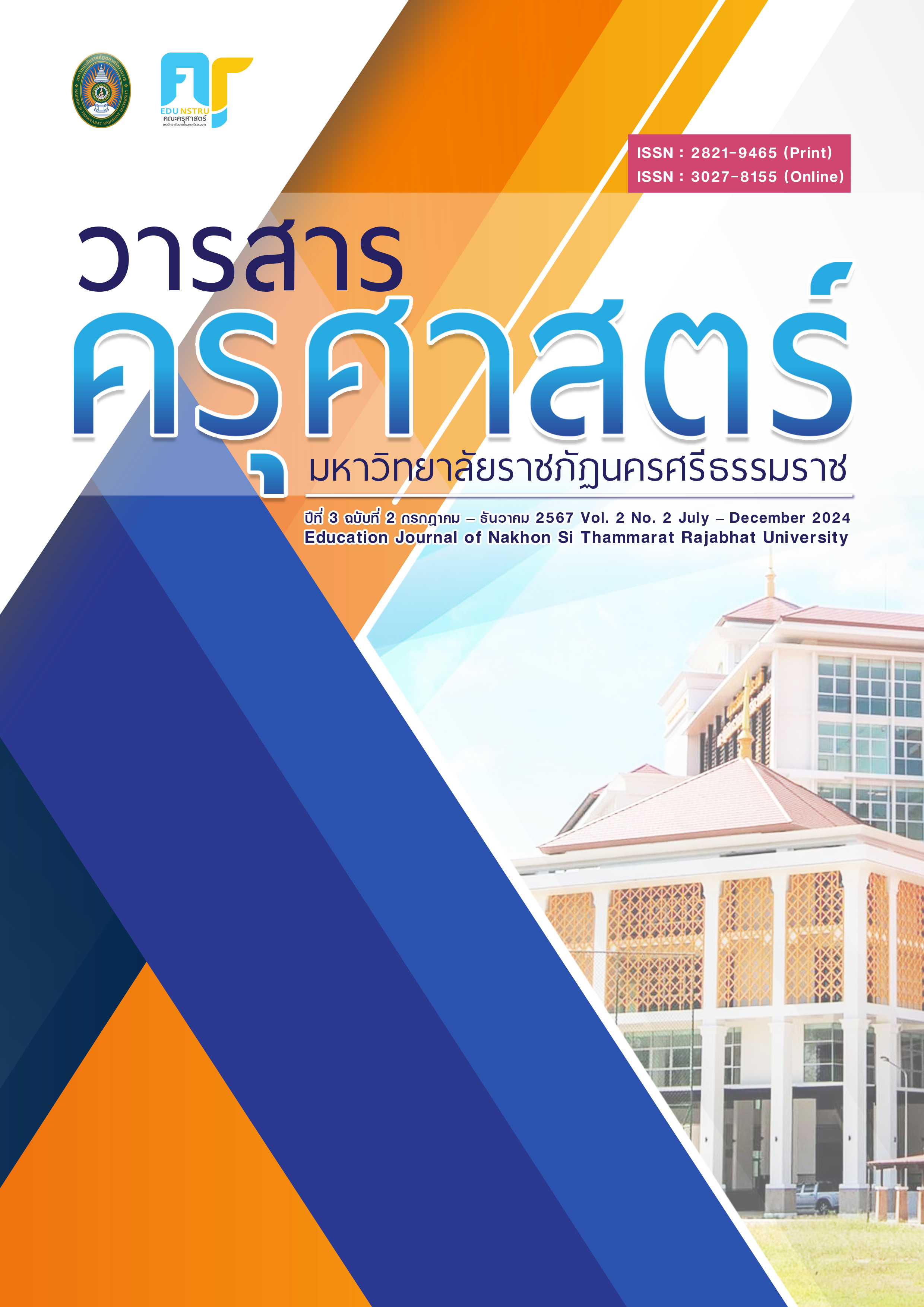Analysis of the Differences in Thai Education Models and Their Impact on Learners' Learning Outcomes
Main Article Content
Abstract
This academic article relates how various aspects of the Thai education system influence students' academic achievements to analyze the differences between each current Thai education system as defined in the National Education Act B.E. 2542 (1999) and Amendments (Second National Education Act B.E. 2545 (2002)). The learning outcomes in this context refer to the development of skills, knowledge, abilities, and the adaptability of learners, which result from various educational processes. These outcomes encompass the acquisition of knowledge, the enhancement of life and professional skills, the adaptation to social life, and lifelong learning.
The analysis found that formal education provides a well-structured learning framework and curriculum, with clearly defined assessment criteria. This allows learners to develop both academically and in terms of the skills necessary for further education. In contrast, non-formal education offers flexibility in terms of content, format, and duration, enabling learners to develop skills that align with their needs and environment, even though formal assessments are not always in place. As for informal education, learners are able to pursue knowledge based on their interests and abilities through various learning resources, without formal assessments, yet they continue learning throughout their lives.
This study concluded that the three education systems yield different learning outcomes depending on their structure. Systems with clear frameworks and formal assessments promote readiness for further education, while systems with high flexibility effectively help learners develop skills tailored to their individual needs.
Article Details

This work is licensed under a Creative Commons Attribution-NonCommercial-NoDerivatives 4.0 International License.
บทความที่ได้รับการตีพิมพ์เป็นลิขสิทธิ์ของวารสารครุศาตร์ มหาวิทยาลัยราชภัฏนครศรีธรราช
ข้อความที่ปรากฏในบทความแต่ละเรื่องในวารสารวิชาการเล่มนี้เป็นความคิดเห็นส่วนตัวของผู้เขียนแต่ละท่านไม่เกี่ยวข้องกับวารสารครุศาสตร์ มหาวิทยาลัยราชภัฏนครศรีธรรมราช
References
Aekun, P. (1999). Thai education. Bangkok: Faculty of Education, Suan Sunandha Rajabhat University.
Boonwatthanakul, C. (2016). Direction for Providing Nonformal and Informal Education for Thailand. Veridian E –Journal,Silpakorn University, 9(3), 984-1004. Retrieved from https://he02.tci-thaijo.org/index.php/Veridian-E-Journal/article/view/75630/60913 (in Thai)
Department of Learning Encouragement : DOLE. (2012). Research report on the evaluation of the performance of non-formal and informal education. According to the Act on the Promotion of Non-Formal and Informal Education, B.E. 2008. Bangkok: Rang Printing
Department of Non-Formal Education. (1995). Lifelong education (2nd ed.). Department of Non-Formal Education.
La-Hay, M. (2017). Non Formal and Informal Education Needs of the Learners in Pattani Province (Master’s thesis). Songkla: Songkla University. Retrieved from https://kb.psu.ac.th/psukb/bitstream/2016/11842/1/TC1483.pdf (in Thai)
Media Thailand. (2012, May 28). Formal education. Media Thailand. https://www.mediathailand.org/2012/05/blog-post_3505.html (in Thai)
Ministry of Education. (2017). National Qualifications Framework (Thailand NQF) revision edition. Bangkok: Ladprao Teachers Council. Retrieved from https://ir.rmutsv.ac.th/sites/ir.rmutsv.ac.th/files/Thailand%20NQF_0.pdf (in Thai)
Thipakorn, B. (2016). Why does everyone talk about learning outcomes. KMUTT. https://www.c4ed.kmutt.ac.th/copy-of-my2satangstqf (in Thai)
Leicht, A., Combes, B., Byun, W. J., Agbedahin, A. V. (2018). Issues and trends in Education for Sustainable Development “Chapter 1 From Agenda 21 to Target 4.7:the development of Education for Sustainable Development” [K. Hanirattisai, Trans] Bureau of International Cooperation, MOE. https://bic.moe.go.th/index.php/gallery/2021-08-29-21-34-25/320-issues-and-trends-in-education-5-4-61 (in Thai)
Ongsanuea. (2023, February 9). Listen to Thailand education options. Thai PBS. https://thecitizen.plus/node/71793 (in Thai)
Paiboon, S. (1990). Principle of educational system development in Thailand. (in Thai)
Pan-iem, K. (2018). Effect on education norms in secondary school through students' narrative approach (master’s thesis). Nakhon Pathom: Silpakorn University. Retrieved from http://ithesis-ir.su.ac.th/dspace/bitstream/123456789/2264/1/57260306.pdf (in Thai)
Sommai, P. (2015). The development of educational quality in Thailand during the transitionera. Journal of Curriculum Research and Development, 5(2), 123–140.
Thummake, P., & Phosing, P. (2019). Thai Higher Education: The Changes toward ASEAN Community. Humanities and Social Sciences Journal, Ubon Ratchathani Rajabhat University, 8(1), 110–130. Retrieved from https://so01.tci-thaijo.org/index.php/humanjubru/article/view/210248 (in Thai)
Thammawithikul, A. (2009, May 17). Non-formal Education. Panchalee's Blog. https://panchalee.wordpress.com/2009/05/17/non-formaleducation/
Tongchot, P. (2011). Student satisfaction toward educational management of formal education of Trat Province (Master’s thesis). Chanthaburi: Rambhai Barni Rajabhat University. (in Thai)
Tummons, J. (2012). Curriculum Studies in the Lifelong Learning Sector. New York City: SAGE Publications, Inc. DOI: https://doi.org/10.4135/9781526435781
UNESCO. (2015). Education 2030: Incheon Declaration and Framework for Action Towards inclusive and equitable quality education and lifelong learning for all. Moscow, Russian Federation. Retrieved from https://iite.unesco.org/publications/education-2030-incheon-declaration-framework-action-towards-inclusive-equitable-quality-education-lifelong-learning/


